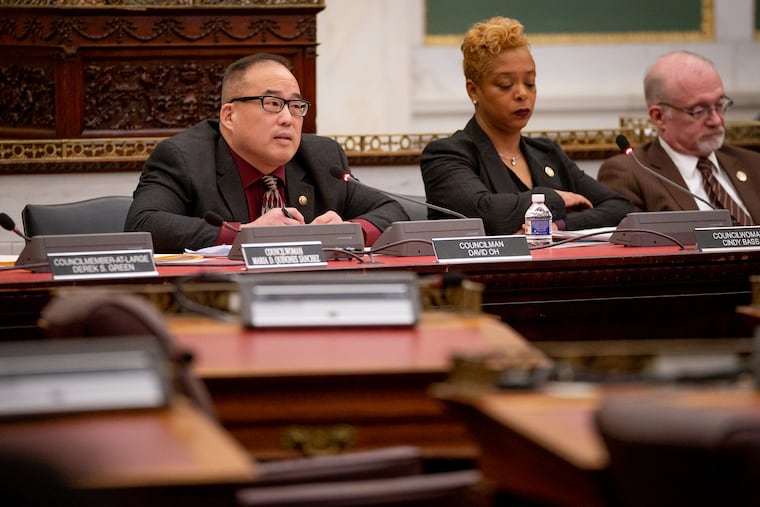We should do a better job supporting families, not separating them | Editorial
It’s a disturbing coincidence that the city with the highest poverty rate also has the highest child removal rate.

A City Council hearing on Department of Human Services this week served a good purpose, even if it might have been held for the wrong reason. The hearing was called by Councilman David Oh to discuss whether the threshold for reporting suspected child abuse should be lowered and guidelines be altered to allow more objectivity.
The question was prompted by Oh’s own experience; while practicing martial arts, Oh’s young son fractured his collarbone. At the hospital, Oh was surprised when a social worker asked to talk to the child alone as a part of an investigation into possible child abuse. The Ohs were cleared of all wrongdoing.
As upset or affronted Oh might have been from this experience, a wiser person might have come away from the experience grateful the system worked, not raise questions about whether we should ask healthcare providers to be less vigilant -- a move that DHS argues is not possible since the reporting guidelines are written by the state.
Still, the hearing was ultimately useful as an opportunity to get a current picture of the state of DHS and the well-being of the city’s children. The hearing focused not on how investigations start, but how they end. In too many cases in Philadelphia, DHS involvement leads to having a child removed from his or her family.
Our city had the highest rate of child removal of all large metro areas in the country as of 2017. According to DHS, children were removed from 739 families in fiscal year 2018. Over 12,500 families were investigated.
It’s not that parents in this city abuse their children more than in other places. According to testimony by Kara Fink, professor of law at the University of Pennsylvania, in fiscal year 2015, only 9 percent of children entered the foster care system for physical abuse compared to 23 percent due to neglect. Out of all the kids that are in foster care in Pennsylvania, 14 percent entered for inadequate housing, These removals raise important flags about the stress points in the city’s families, especially those in poverty – which can often be confused for neglect.
In fact, it’s a disturbing coincidence that the city with the highest poverty rate also has the highest child removal rate. We should be striving to make sure the two are not connected, and add a new level of urgency to supporting families in need, such as increasing the city’s stock of affordable housing. The city also needs better addiction treatment options, since 50 percent of removals are due to a parents’ addiction,
Many advocates argue that we should be providing legal representation to parents who face their child being removed from their house. That gives parents a fair chance to make their case in front of a judge and prevent a removal. The city adopted a similar process last year for low income tenants facing eviction.
Removal of children from their family because of a lack of money or social services blames the victim instead of addressing deeply rooted problems that impact our children. Providing legal representation is a step that would promote fairness in the system.